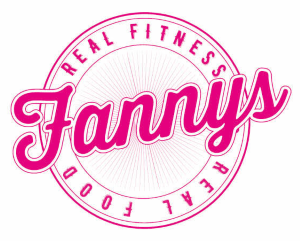Scales – do you love them or loathe them? Recent trends have seen a persuasion towards scales being the ‘dreaded enemy’, something to be fearful of or to shy away from and it’s true that they have their downside. For example, it’s true that, for some people, an unhealthy reliance or obsession with monitoring weight can lead to or exacerbate undesirable eating patterns or views about self image. In addition, body weight alone doesn’t always provide the full picture about how fit or healthy somebody is. A person who is more muscular will weigh more than somebody who isn’t. Conversely, somebody who is lighter could be carrying lots of internal fat and consequently as at risk of disease as somebody who is over weight.
Having said this, I am a big believer in scales and think that they serve a fundamental purpose. Your weight – measured properly and in conjunction with other useful information – can provide really useful insight and feedback about how you are doing with your health and body goals. Scales that measure fat and muscle percentage, used alongside girth measurements provide a reliable means of easily tracking your body composition gains or losses (or of course maintenance).
Not tracking your weight can mean that it’s easy to live in denial and we’re all good at doing that. Yes your tighter-than-normal-jeans might be an indication that you have gained size, but we all know how nice and easy it is to opt for that comfy pair of slacks and worry about the ‘jeans issue’ another day. Plus, tight jeans aren’t always telling you the meaning of the tightness. It could in fact be that you’ve gained muscle and lost fat (or if you’re feeling the reverse it could of course be that you’ve lost muscle and gained fat, making you feel slimmer and lighter).
Rather than seeing scales as a means to self shame or cause negativity, I believe that scales can and should be used to keep us informed of our current status. My advice would be to not obsess over small daily, or even weekly fluctuations – as something as simple as hydration status can make a big difference to the number on the scales, but of course does not reflect actual body mass (fat or muscle) gain or loss – but to pay more attention to general trends i.e. is your weight steadily increasing, decreasing, or remaining roughly the same. As well as tracking weight I would also advise using other methods too such as girth measurements (arms, legs, waist and hips for example) which give you important information about how your body is changing. Importantly a hip to waist ratio can also tell you your likelihood of developing certain conditions such as diabetes and cardiovascular disease – something which is good to keep a track of!!
The key points to remember are to eat good, real, whole foods with minimal processing and minimal refined carbs and to keep your body moving. Then use scales and other measurements to check to see if your healthy behaviours are having the desired effect. In general, if you are eating good food and not too much of it and you’re either active in your daily life and/or carrying out purposeful exercise then you should be able to maintain a healthy weight. If not then you might need to make the appropriate adjustments – or possibly to investigate why your body isn’t responding to these appropriate healthy behaviours. Importantly, try to reward yourself for your behaviours rather than the resulting outcome. If you feel like you’ve eaten and exercised well then allow yourself some internal (or external) praise about this to keep you motivated – regardless of what the scales are telling you in the short term. Then stick with it, because even if you aren’t seeing immediate results on the outside you can be assured that your good food and high activity is doing you good on the inside.





